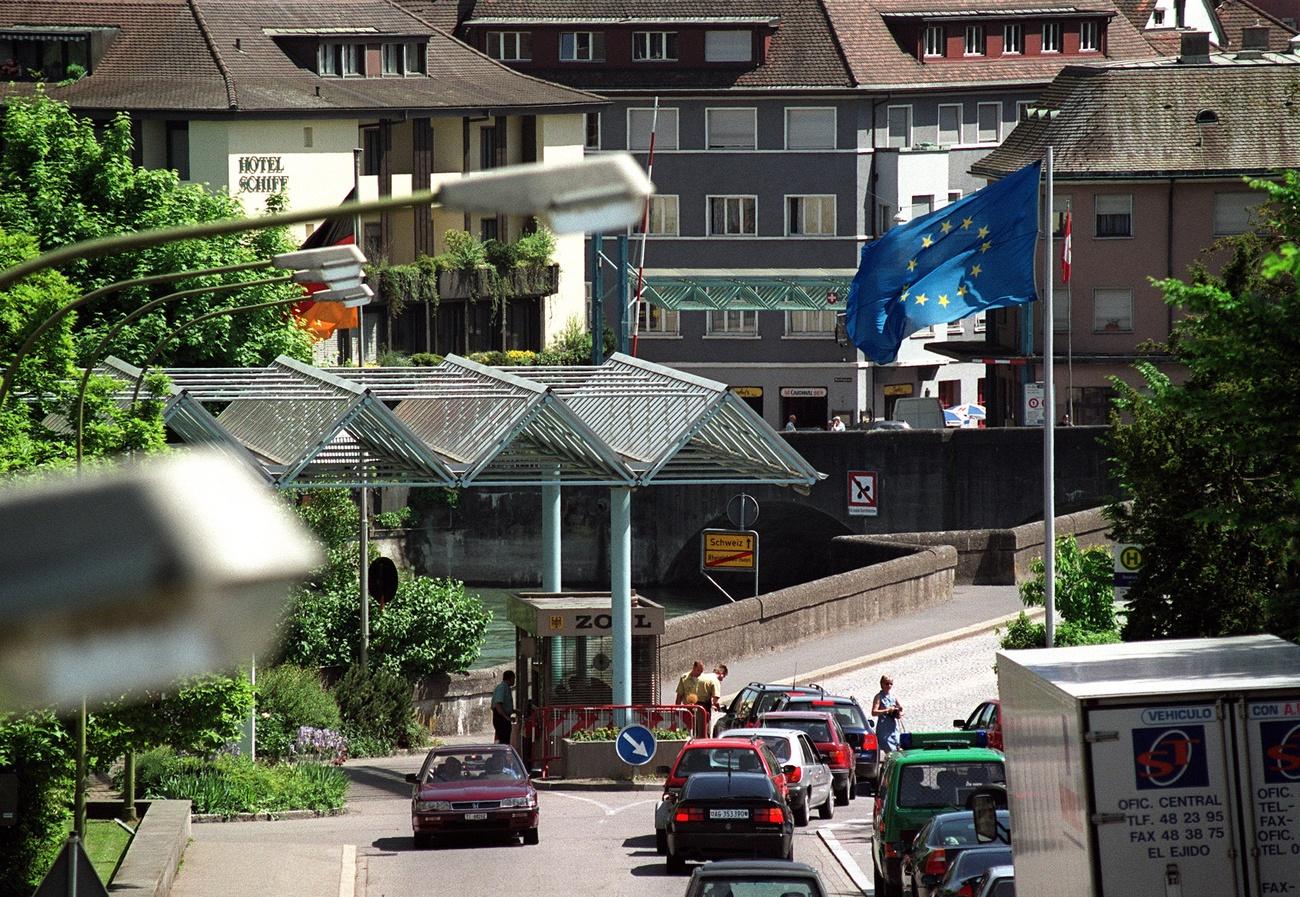
EU immigration not bad for Swiss jobs, says economics ministry

Immigration from the European Union remained stable last year and had a minimal impact on Swiss salaries, the State Secretariat for Economic Affairs (SECO) has announced.
In its annual report analysing the effects of the free movement of people agreement – which allows for immigration from EU countries to Switzerland – SECO said on Monday that numbers last year were roughly the same as those in 2017, with a net influx of 31,200.
The figure is lower than the long-term average, and is notably a big drop from the record of 68,000 arrivals recorded in 2013, a year before Swiss citizens controversially voted to restrict immigration from Europe.
In terms of employment, which was one of the driving forces of the 2014 vote, SECO reckons that the large presence of foreign workers in the country does not have a significant impact either on Swiss job prospects or salaries.
On average, the report finds, European immigrants earn salaries slightly higher than the Swiss. However, this is mostly driven by workers from western and northern Europe; those from southern and eastern European countries are often under-employed and earn salaries 6% lower than the Swiss.
Local preference
The report also offered a tentative appraisal of a “job priority for Swiss residents” measure introduced last year as a way of assuaging the fears expressed by the 2014 vote.
Under this system, employers in sectors with an unemployment rate of at least 8% must first advertise vacant positions to jobseekers registered at Swiss unemployment offices; if the position is not filled within a week, only then should they resort to immigrant labour.
And although it is too soon to quantify the direct effects the measure has had on immigration and employment (a further report is scheduled for the autumn), SECO’s Boris Zürcher told Swiss public radio RTS that his ministry is pleased with the positive effects so far.
Despite the extra administrative load of the back-and-forth dealings with unemployment offices, “businesses have taken this on board,” he said. “The measures have allowed a considerable number of jobseekers in Switzerland to take advantage.”
In 2018, 32% of the Swiss workforce was comprised of foreigners – 20% of them from EU and European Free Trade Association (EFTA) countries, and 12% from elsewhere. Switzerland is second only to Luxembourg as the European country with such a high rate of foreign workers.

More
Defining the 25% foreign population in Switzerland

In compliance with the JTI standards
More: SWI swissinfo.ch certified by the Journalism Trust Initiative






























You can find an overview of ongoing debates with our journalists here . Please join us!
If you want to start a conversation about a topic raised in this article or want to report factual errors, email us at english@swissinfo.ch.